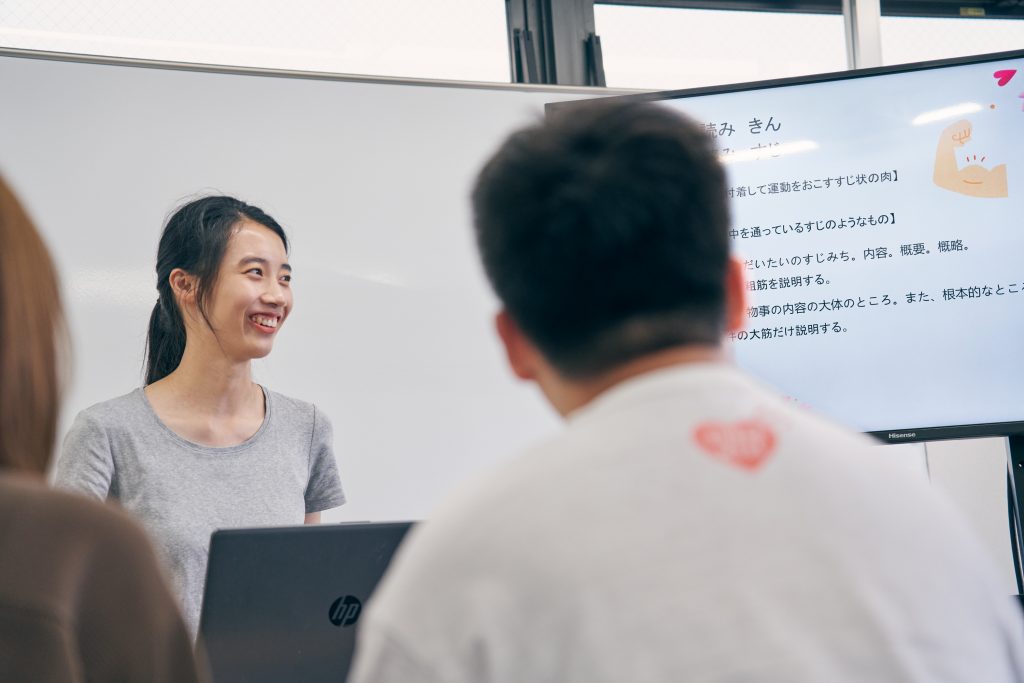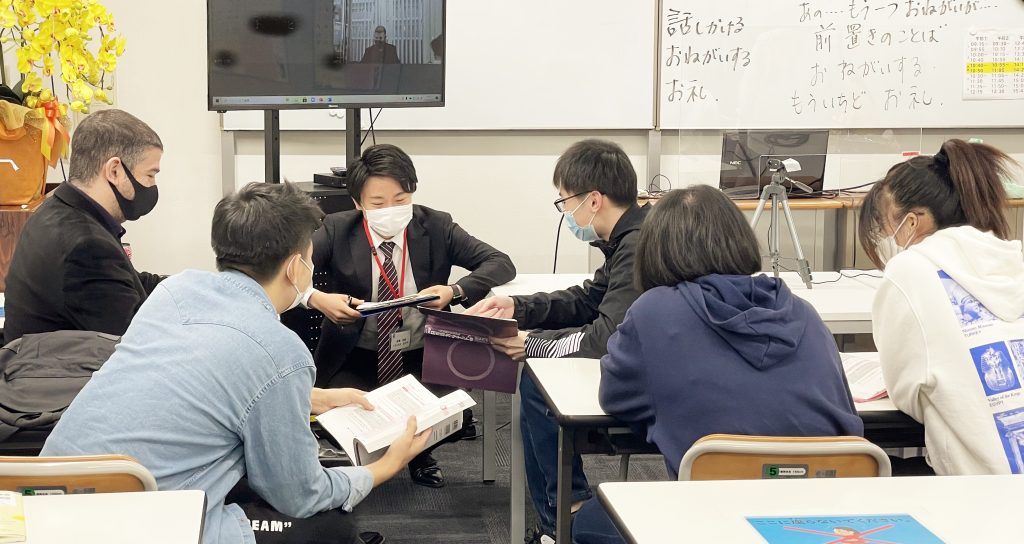ARC Philosophy
Once they have graduated from ARC, the majority of our students enter Japanese society through employment or higher education. To live in a society, it is vital to be able to cooperate and have mutual interactions with others. This faculty displays itself when using Japanese language.
What we do here to teach useful Japanese language, is to put together lessons with rich class activities, focusing strongly on the development of the communication skills.
For us, communication is not conveying one-sidedly the things you want to say. Of course, it’s important to be able to precisely pass the information and message you think or feel.
However, as communication is intended as an exchange, it is fundamental to listen carefully to what the other person is telling us, and understand with clarity the other speaker’s intentions. Also, what cannot be missed for a smooth communication exchange, is to know and mutually respect each other’s cultures and customs, customs that shape the backgrounds of every person’s speech.
Here at ARC, the Japanese language is a communication tool, to make every student a bridge that connects Japan to the world.
ARC Class Activities Educational Features

1. Acquiring Five Skills
To the major skills「Reading・Writing・Listening・Speaking」we add the「Thinking」skill. It’s impossible to have an actual communication exchange without the ability to think.
During our classes, students experience frequent activities in which they have to think.
For example, when writing brief essays to share their opinion, or during speech presentations starting from elementary level. From intermediate and advanced levels, students carry out surveys and reports, conduct interviews and collect information about society themes and problems, along with other various activities where they have to think and share their opinions.
2. Numerous Classrooms Activities
In our school, lessons offer many opportunities for exchange, with plenty of pair work and group activities. Working in pairs or groups, the student can give his opinion, and listen to the partners’ one.
Every day there’s an opportunity for mutual learning while making use of the Japanese language. The act of listening to different opinions and receiving others’ insights is vital for the making of a good and cooperative class.
Finally, the numerous presentations done after the group work are a great way to use the Japanese language. On some occasions, we invite school staff, external teachers and guests to listen to the presentations and receive feedback from them.

3. Promoting Autonomous Learning
The idea of autonomous learning is to have the student think, according to his own goals, what kind of study is better, what pace to study and plan independently for the necessary support and materials.
In our current classes, autonomous learning is adopted in the intermediate and advanced kanji classes. Each student builds his own plan and studies according to his schedule and rhythm. The homeroom teacher plays a key role to offer support for autonomous learning.
4. Optional Classes
After reaching intermediate level, students can study in optional classes. Based on each one’s career ideas and interests, students can choose the class of their preference.
